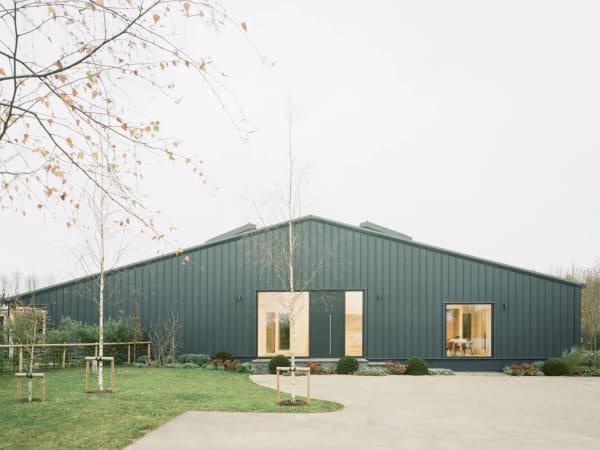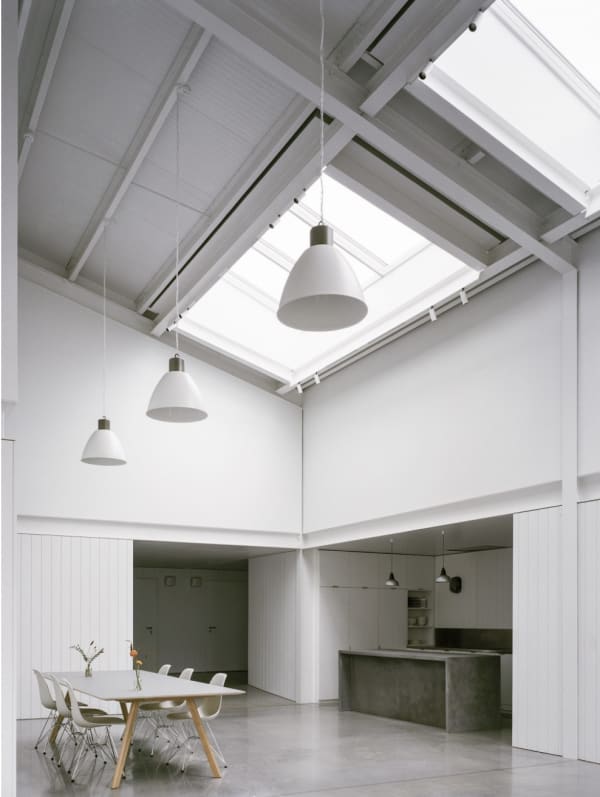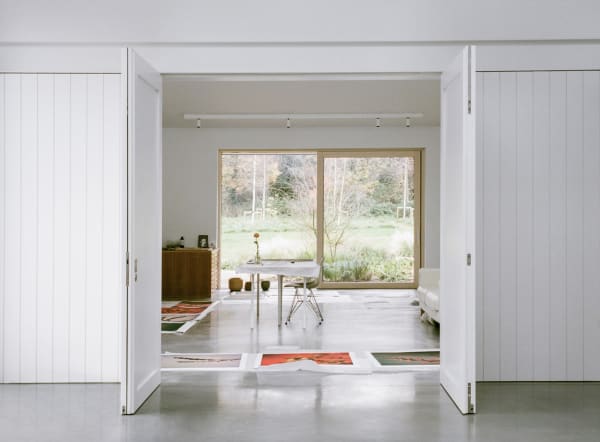‘As young artists, just starting out, without any resources, we often hungered for a space that could give us the time needed to explore creative ideas deeply and meaningfully,’ says award-winning composer Max Richter.
That long-harboured aspiration has finally become a reality in the quiet Oxfordshire countryside. He and BAFTA-winning film-maker and visual artist Yulia Mahr have opened Studio Richter Mahr. The ‘slow retreat’ allows the natural rhythms of rural living and curiosity to guide creativity, giving space and time to experimentation for visual artists, filmmakers and musicians; a radical departure from the high-pace, time-pressured recording studio model.
Richter and Mahr first hit upon the idea for the creative hub over 20 years ago, but finding the perfect location was always a conundrum. They wanted a haven within commuting distance of London (‘but far enough away to feel out of its breathless grasp’ says Richter) – a tough ask, made harder by the pandemic.
After five years of searching, the couple stumbled upon a disused alpaca farm on the edge of a 31-acre woodland in Oxfordshire, where they could finally bring their plan into being. ‘Having spent twenty years thinking about this project, we knew how we wanted every aspect of the studio,’ says Mahr. ‘So we were involved in every detail of the planning and construction. Our brief was very detailed and specific. We started by assembling hundreds of reference images and a wish list of facilities, including my writing studio.
Richter and Mahr enlisted architectural designers Charlie Luxton and James Renfrew to manifest their vision. ‘So many recording studios are hostile environments,’ says the couple who cite poor air circulation and harsh artificial lighting as norms. ‘We wanted something different, a space that invites creativity.’
Luxton and Renfrew (working with construction firm Midland) adapted as much of the pre-existing tractor shed as possible and installed cutting-edge solar panels and heat pumps to power the complex, achieving its carbon-negative standard. Battling through delays and pressures from Brexit and the pandemic, Studio Richter Mahr was completed in an astonishing two years.


